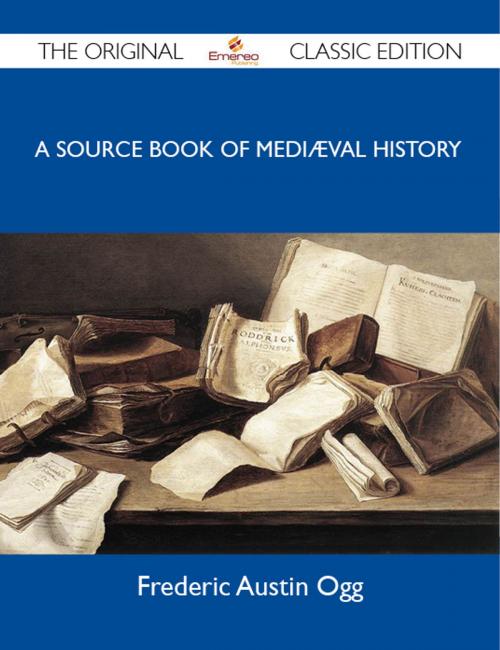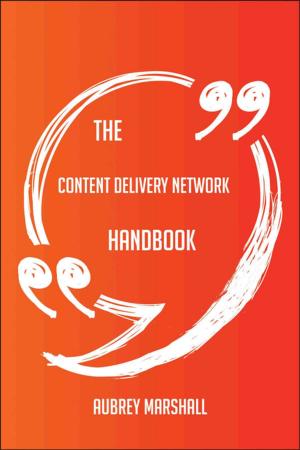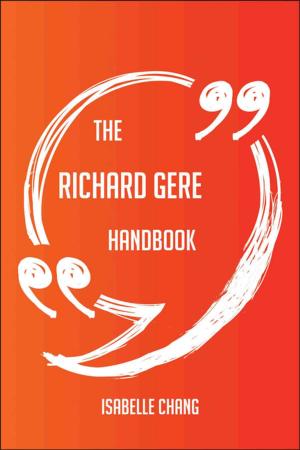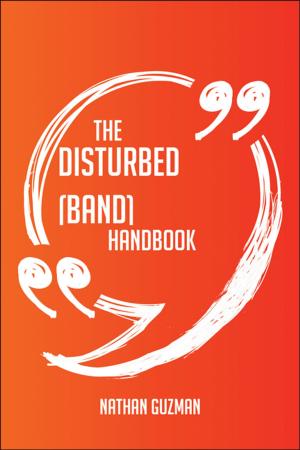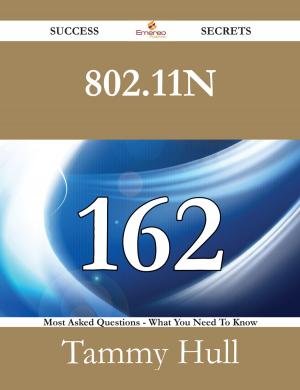A Source Book of Mediæval History - The Original Classic Edition
Nonfiction, Reference & Language, Reference, Fiction & Literature| Author: | Ogg Frederic | ISBN: | 9781486417698 |
| Publisher: | Emereo Publishing | Publication: | October 24, 2012 |
| Imprint: | Emereo Publishing | Language: | English |
| Author: | Ogg Frederic |
| ISBN: | 9781486417698 |
| Publisher: | Emereo Publishing |
| Publication: | October 24, 2012 |
| Imprint: | Emereo Publishing |
| Language: | English |
Finally available, a high quality book of the original classic edition.
This is a new and freshly published edition of this culturally important work, which is now, at last, again available to you.
Enjoy this classic work today. These selected paragraphs distill the contents and give you a quick look inside:
In the choice of extracts I have sought to be guided by the following considerations: (1) that in all cases the materials presented should be of real value, either for the historical information contained in them or for the more or less indirect light they throw upon mediæval life or conditions; (2) that, for the sake of younger students, a relatively large proportion of narrative (annals, chronicles, and biography) be introduced and the purely documentary material be slightly subordinated; (3) that, despite this principle, documents of vital importance, such as Magna Charta and Unam Sanctam, which cannot be ignored in even the most hasty or elementary study, be presented with some fulness; and (4) that, in general, the rule should be to give longer passages from fewer sources, rather than more fragmentary ones from a wider range.
...Literal, or nearly literal, 4 translations are obviously desirable for maturer students, but, because of the involved character of mediæval writings, are rarely readable, and are as a rule positively repellent to the young mind; (2) to provide each selection, or group of selections, with an introductory explanation, containing the historical setting of the extract, with perhaps some comment on its general significance, and also a brief sketch of the writer, particularly when he is an authority of exceptional importance, as Einhard, Joinville, or Froissart; and (3) to supply, in foot-notes, somewhat detailed aid to the understanding of obscure allusions, omitted passages, and especially place names and technical terms.
...And if you pushed the matter farther it would very soon occur to you that there are some books on Lincoln and his period which are not carefully written, and therefore not trustworthy, and that your author may very well have used some of these, falling blindly into their errors and at times wholly escaping the correct interpretation of things which could be had, in incontrovertible form, from Lincolns own pen, or from the testimony of his contemporaries.
...Just as in ascertaining the facts regarding an event of to-day it would be desirable to get the testimony of an eye-witness rather than an account after it had passed from one person to another, suffering more or less distortion at every step, so, in seeking a trustworthy description of the The superiority of direct sources of knowledge battle of Salamis or of the personal habits of Charlemagne, the proper course would be to lay hold first of all of whatever evidence concerning these things has come down from Xerxess or Charlemagnes day to our own, and to put larger trust in this than in more recent accounts which have been played upon by the imagination of their authors and perhaps rendered wholly misleading by errors consciously or unconsciously injected into them.
Finally available, a high quality book of the original classic edition.
This is a new and freshly published edition of this culturally important work, which is now, at last, again available to you.
Enjoy this classic work today. These selected paragraphs distill the contents and give you a quick look inside:
In the choice of extracts I have sought to be guided by the following considerations: (1) that in all cases the materials presented should be of real value, either for the historical information contained in them or for the more or less indirect light they throw upon mediæval life or conditions; (2) that, for the sake of younger students, a relatively large proportion of narrative (annals, chronicles, and biography) be introduced and the purely documentary material be slightly subordinated; (3) that, despite this principle, documents of vital importance, such as Magna Charta and Unam Sanctam, which cannot be ignored in even the most hasty or elementary study, be presented with some fulness; and (4) that, in general, the rule should be to give longer passages from fewer sources, rather than more fragmentary ones from a wider range.
...Literal, or nearly literal, 4 translations are obviously desirable for maturer students, but, because of the involved character of mediæval writings, are rarely readable, and are as a rule positively repellent to the young mind; (2) to provide each selection, or group of selections, with an introductory explanation, containing the historical setting of the extract, with perhaps some comment on its general significance, and also a brief sketch of the writer, particularly when he is an authority of exceptional importance, as Einhard, Joinville, or Froissart; and (3) to supply, in foot-notes, somewhat detailed aid to the understanding of obscure allusions, omitted passages, and especially place names and technical terms.
...And if you pushed the matter farther it would very soon occur to you that there are some books on Lincoln and his period which are not carefully written, and therefore not trustworthy, and that your author may very well have used some of these, falling blindly into their errors and at times wholly escaping the correct interpretation of things which could be had, in incontrovertible form, from Lincolns own pen, or from the testimony of his contemporaries.
...Just as in ascertaining the facts regarding an event of to-day it would be desirable to get the testimony of an eye-witness rather than an account after it had passed from one person to another, suffering more or less distortion at every step, so, in seeking a trustworthy description of the The superiority of direct sources of knowledge battle of Salamis or of the personal habits of Charlemagne, the proper course would be to lay hold first of all of whatever evidence concerning these things has come down from Xerxess or Charlemagnes day to our own, and to put larger trust in this than in more recent accounts which have been played upon by the imagination of their authors and perhaps rendered wholly misleading by errors consciously or unconsciously injected into them.
